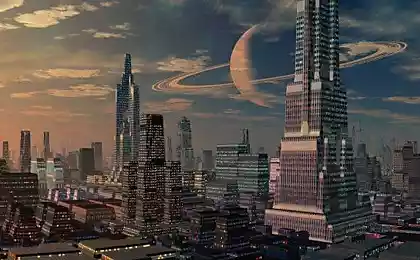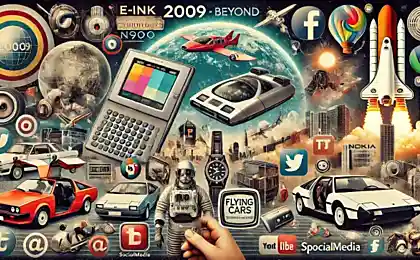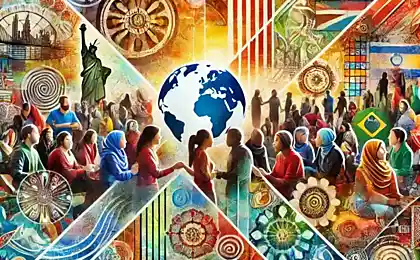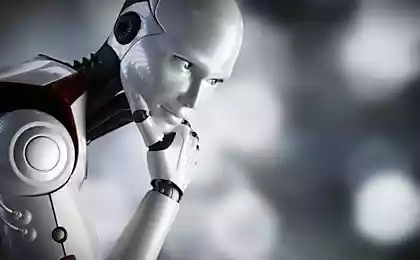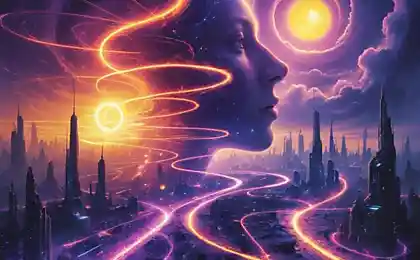676
6, the most optimistic forecasts for the future of mankind
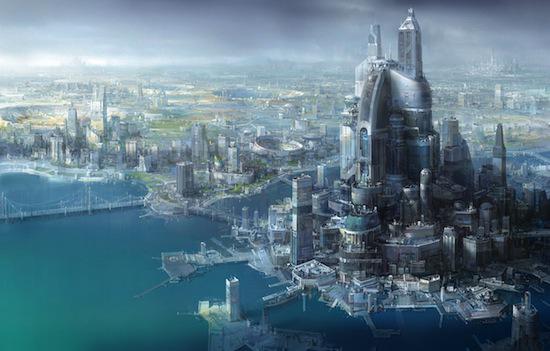
Most science fiction writers and futurists see the future of humanity in a rather gloomy colors, and not without reason. Our attitude to the environment leaves much to be desired, we are too thoughtless use of technology and more and more are improving in self-destruction. However, there are optimists who are distant future is amazing and wonderful. Here you will find six of the most optimistic forecasts the prospects for development of our civilization.
1. The status kvoV 1990s, an American political scientist, economist and writer Francis Fukuyama wrote the book "The End of History and the Last Man" and "The End of the procedure." He argued that the political, technological and economic status of our planet suggests that humanity is approaching the final stop of his journey. It is, of course, wrong. These books were simply dismal response to the collapse of the Soviet Union and the talk about the so-called new world order.
A somewhat more realistic assessment of the current situation was formulated by the co-founder of the American company manufacturer of hardware and software Sun Microsystems Bill Joy. In the 2004 article "Why we do not need the future," he wrote about the catastrophic consequences that can result in the development of 21st century technology such as robotics, genetic engineering and nanotechnology. Joy said: the most sensible that mankind can do today - to use what is already there. The only way it can prolong your existence on the planet.
2. Green planetaDalёkoe future often seems to us a sort of "Cybertron" chained to the steel edge to edge. This is the worst nightmare of "green", where technology and thoughtless use of natural resources bend under him all living things. But who said that everything should be this way? The future of our planet may well be far more flourishing than we can imagine. Representatives of the "green" Futurism believe that we can use high technology to clean Earth, create new sources of energy, and even transform the planet itself.
The very first idea of the series was introduced motion of Bruce Sterling's "Green Design". The movement advocates the use of innovative technologies to solve environmental problems. According to the forecasts of Stirling, the future of the planet is much more ecologically diverse than at any other moment in history.
In such a future, man will not change much - to live in harmony with the surrounding world. All our energy, he will receive from the source of the Earth and the sun. Having thoroughly studied terrestrial ecosystems, and humanity will change - for example, put an end to all suffering and animal predation. And it will control the weather at their own discretion.
And in the end, we learn to prevent all sorts of natural disasters: the fall of asteroids, earthquakes, hurricanes, volcanoes ...
3. Life is surrounded by "the grace and love of cars," Unfortunately, it is likely that the age of technological euphoria will soon end. Thirty years and have radically improved its own intelligence machines can get out of our control, and then we will definitely not be good. But, on the other hand - the one power that can destroy us, it may be salutary to mankind and - so say the members of the movement "Singularity».
If the future inventor of artificial intelligence will be to set the right goals, according to "Singularity", the next generation will live among so-called "friendly robot" programmed on the inability to harm humans. Moreover, the machine will ensure that nothing bad will happen to us and to protect against all possible dangers. Paradise, which provides a bright future for us, artificial intelligence, devoted a poem by Richard Brautigan, entitled "For all of the following cars grace and love" and the eponymous British film.
4. Go where no one has yet been ... It's time to break away from our little ball and start to colonize other solar systems - some futurists believe. On this depends not only our salvation (the idea that we can not keep all your eggs in one basket), it is inherent in our very nature - to evolve, to move on and conquer new horizons.
Even our more timid attempt in space bring us a lot of benefits - technology using satellites and some breakthroughs.
What might be the colonization? Perhaps it will be something like the von Neumann probes - self-replicating spacecraft that will fly to a neighboring star system, which will produce for us minerals and create their replicas, which, in turn, will travel to other star systems with the same purpose.
So far in our galaxy interstellar travelers could not see, in this connection there was a so-called "Fermi Paradox", which can be summarized as follows: "Connection widespread belief that in the universe there is a significant number of technologically advanced civilizations, with the absence of any -nibud observations that would confirm it is paradoxically leads to the conclusion that either our understanding of nature, and our observations are incomplete and erroneous ».
So, it is quite possible we will be the first and only civilization with the ambitions of the colonizers in the galaxy.
5. Internal prostranstvoEschё one alternative idea - perfect and cloudless existence can be achieved by overloading their minds in the giant supercomputers. Computers huge computing power - like megastructure called "brain-matryoshka", proposed by Robert Bradbury, will use the full energy potential of the world to operate the computer system.
Or find a way to build a civilization of so-called "Dyson sphere", which is a relatively thin spherical shell with a star in the center. Thus will be solved at once two global problems - the living space and energy, which is in abundance will be available from the central star.
6. Eternal blazhenstvoBritansky philosopher David Pearce in his "hedonistic imperative" formulated the idea of building a heaven on earth, which is to establish a biological weapons program, which allows to get rid of all kinds of violence, misery and disease.
The emotional life of a person would have to be regulated by special synthetic drugs (not drugs) regulating mood. And in the long term should be rewritten the genome of all vertebrates, so that in the animal world there was no more pain.
What really would be our future - nobody knows. One thing is clear - there are so many variants of its development, more than we can even imagine today.
Source: www.mixstuff.ru
via factroom.ru
Medea hypothesis says life is actually making our planet uninhabitable
"Moonwalk" invented not Michael Jackson



